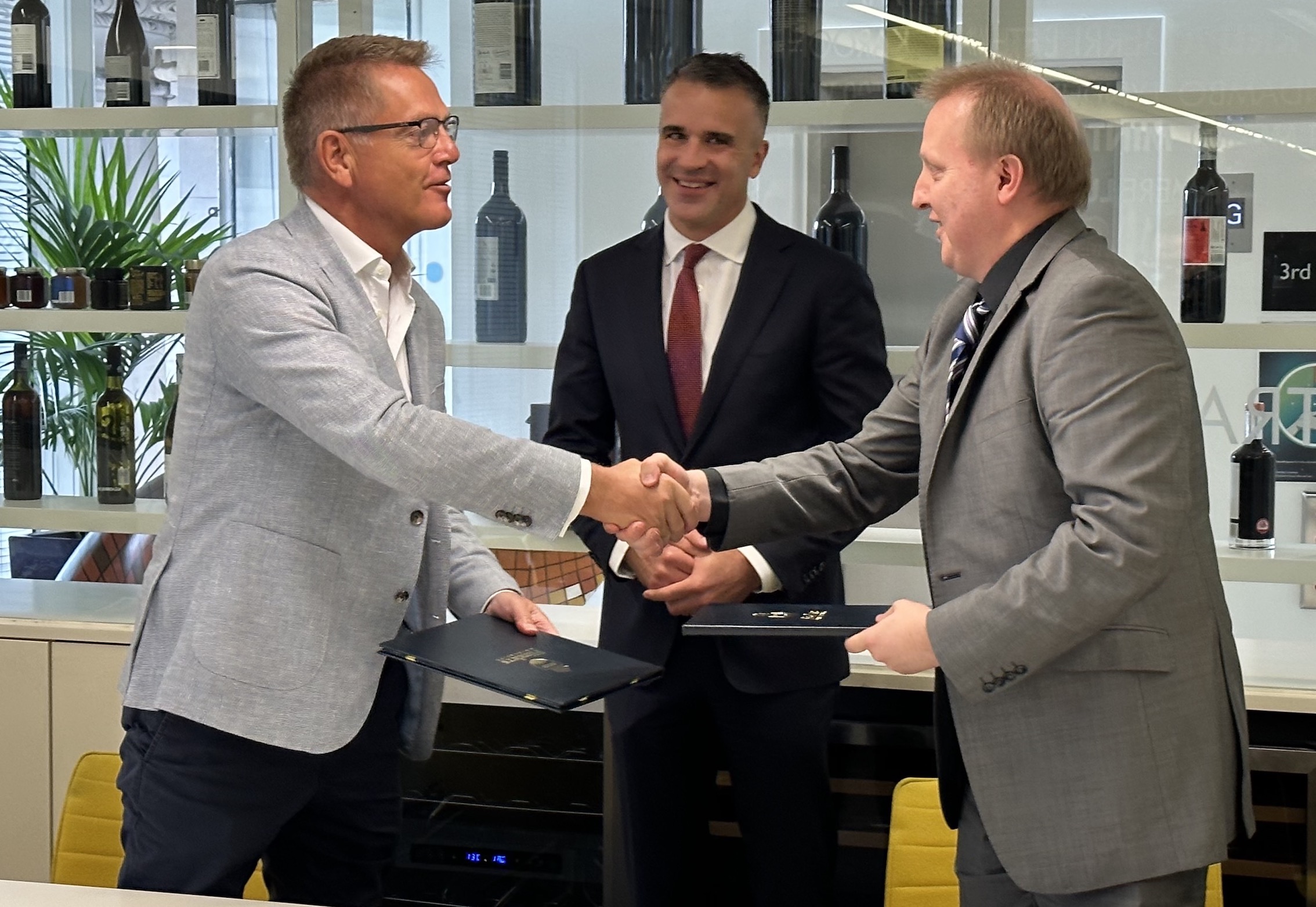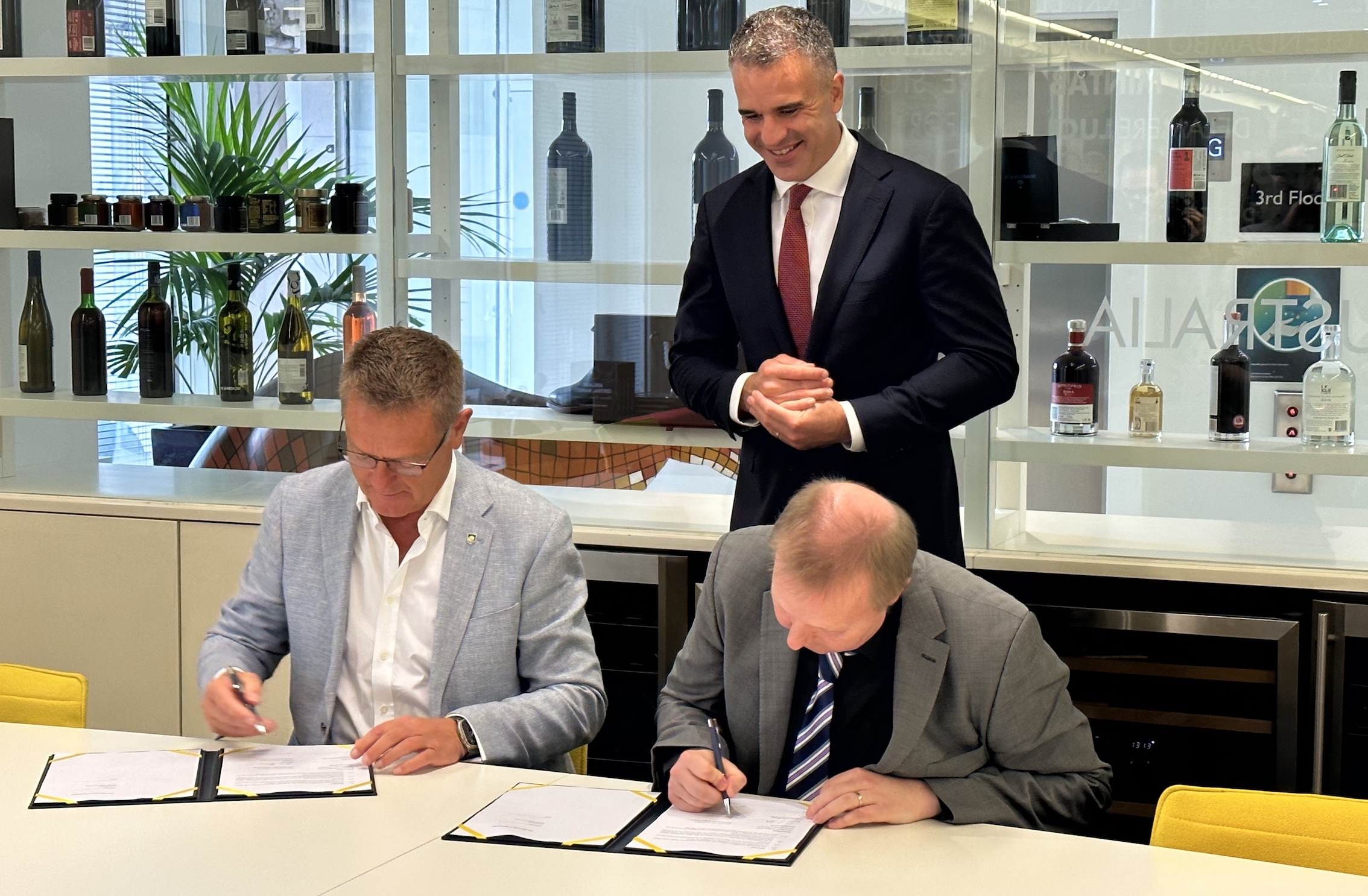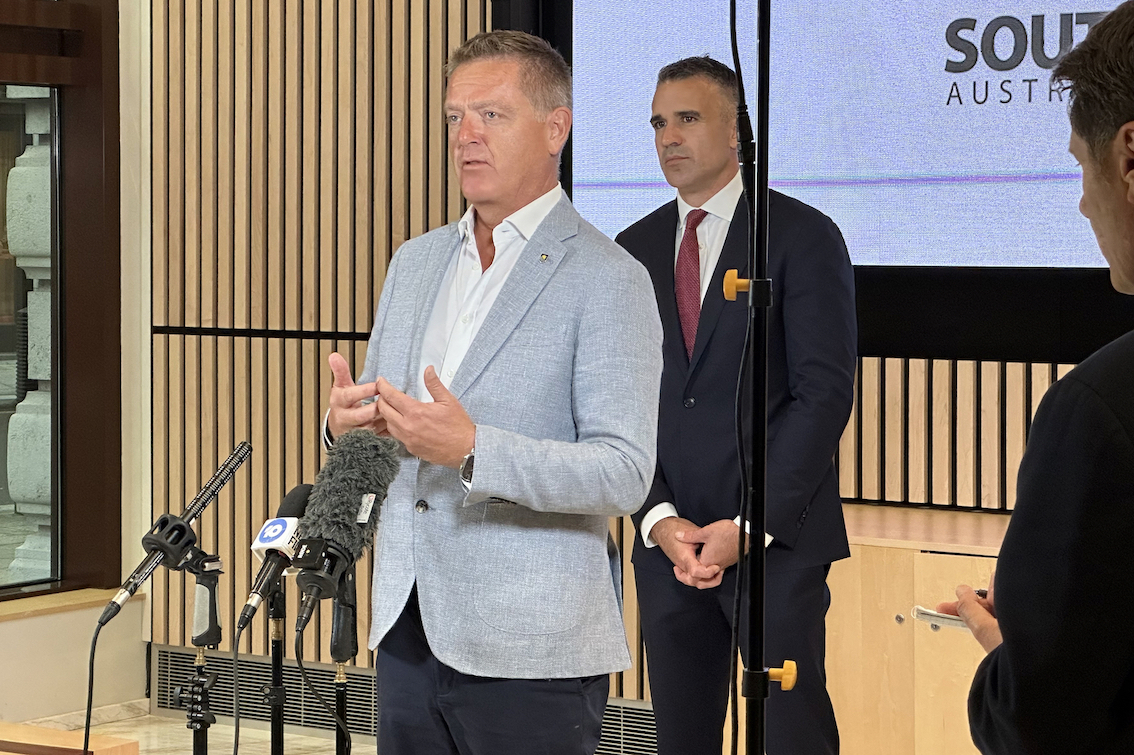
South Australia will become a home for international nuclear expertise ahead of AUKUS submarine construction, with Flinders University striking agreements with leading nuclear science and technology universities in the United Kingdom and United States.
The landmark research and education partnerships will immediately begin developing the specialist skills required for the nation’s largest ever infrastructure program.
The University of Manchester, the lead university in the UK’s Nuclear Technology Education Consortium, has partnered with Flinders University for the Australian delivery of its nuclear masters programs and doctoral level research training.
A second agreement was signed with The University of Rhode Island, a leading US public research university known for its global programs and engagement, including an innovative international engineering program.
The University of Rhode Island has strong ties to the submarine manufacturing industry. The partnership agreement with URI will foster collaborative research, explore cooperative educational opportunities and internships, and promote jointly hosted seminars and events.
These historic partnerships enable Flinders University to deliver a comprehensive suite of the world’s best nuclear education in South Australia as early as 2023, with the ability to rapidly scale course offerings in line with industry needs.
Home to Dalton Nuclear Institute, The University of Manchester boasts the most advanced academic civil nuclear science and technology capability in the United Kingdom and is amongst the leading institutions in the field internationally.
The University of Rhode Island is noted for its strength in the undersea domain, which includes a notable defence-focused university-industry partnership that collaborates with the U.S. Navy, and the 401 Tech Bridge program in the New England defence innovation ecosystem. URI also hosts the Rhode Island Nuclear Science Center and is home to one of only 25 university-based nuclear reactors in the United States.
The agreements enable Flinders University to offer undergraduate and postgraduate studies to South Australian students, as well as unprecedented nuclear research collaborations, creating a highly skilled South Australian workforce ready and able to deliver this transformational project.

Premier Peter Malinauskas says some 5,500 direct jobs will be created to build the SSN-AUKUS submarines in South Australia when the program reaches its peak in 20 to 30 years, almost double the workforce that was forecast for the former Attack class program.
‘We’ve seen in the UK the massive depth and breadth of skills that are going to be required to build the most complex machines in history.
‘There’s no time to waste. We’ve already agreed to partner with the Commonwealth to deliver a Skills Academy, and an additional 800 university places over the next four years,’ Premier Malinauskas says.
‘The partnerships between Flinders, Manchester and Rhode Island universities will see hundreds of South Australians beginning to learn the skills required to operate nuclear-powered submarines.
We should not underestimate the step-change these new skills will bring to our economy.
‘In the long run, it will mean more South Australians working in highly skilled, highly paid positions,’ he says.
Flinders University President and Vice-Chancellor, Professor Colin Stirling says the new agreements will complement Flinders’ wide range of STEM degrees.
‘These historic new partnerships will bring the world’s best nuclear education and research programs to Adelaide, equipping Flinders graduates with the high-tech skills required to build the SSN-AUKUS submarines.
‘Flinders is internationally recognised as a leader in advanced manufacturing capability at our innovation campus at Tonsley. Our partnerships with international leaders in nuclear science and technology will deliver a new level of skills for South Australia’s future workforce.
‘The AUKUS program is an unparalleled advanced manufacturing opportunity that will be the state’s largest ever economic investment, creating thousands of jobs and contributing to sovereign capability and security, and Flinders is ready to deliver,’ Professor Stirling says.

TheUniversity of Manchester President and Vice-Chancellor, Professor Dame Nancy Rothwell, welcomed the Flinders partnership.
‘Through the Dalton Nuclear Institute, we are pleased to be partnering with Flinders University in South Australia for the delivery of its nuclear masters programmes and doctoral research training.
‘The Dalton Nuclear Institute is the umbrella organisation for nuclear activity at The University of Manchester, spanning three faculties to co-ordinate the most advanced civil nuclear research capability in UK academia,’ Professor Rothwell says.
The University of Rhode Island President, Marc Parlange, emphasised the global important elf the Flinders partnership.
‘The University of Rhode Island is known for its global engagement and its enduring legacy of service to the state, nation, and world.
‘Our researchers are committed to addressing the most pressing issues facing our global community.
‘This research partnership with Flinders University will advance our strategic priorities to collaborate globally, create connecting points for communities, companies, and government agencies, and drive innovation that has a meaningful impact on society,’ URI President Parlange says.

